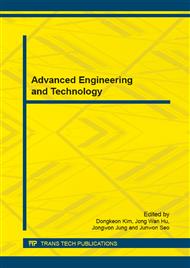p.864
p.873
p.878
p.884
p.890
p.896
p.902
p.908
p.913
Heuristics for an m-Machine Re-Entrant Permutation Flowshop with the Objective of Total Tardiness
Abstract:
We focus on an m-machine re-entrant flowshop scheduling problem with the objective of minimizing total tardiness. In the re-entrant flowshop considered here, routes of all jobs are identical as in ordinary flowshops, but the jobs must be processed multiple times on the machines. We present heuristic algorithms, which are modified from well-known existing algorithms for the general m-machine flowshop problem or newly developed in this paper. For evaluation of the performance of the algorithms, computational experiments are performed on randomly generated test problems and results are reported.
Info:
Periodical:
Pages:
890-895
Citation:
Online since:
April 2015
Authors:
Keywords:
Price:
Сopyright:
© 2015 Trans Tech Publications Ltd. All Rights Reserved
Share:
Citation:


